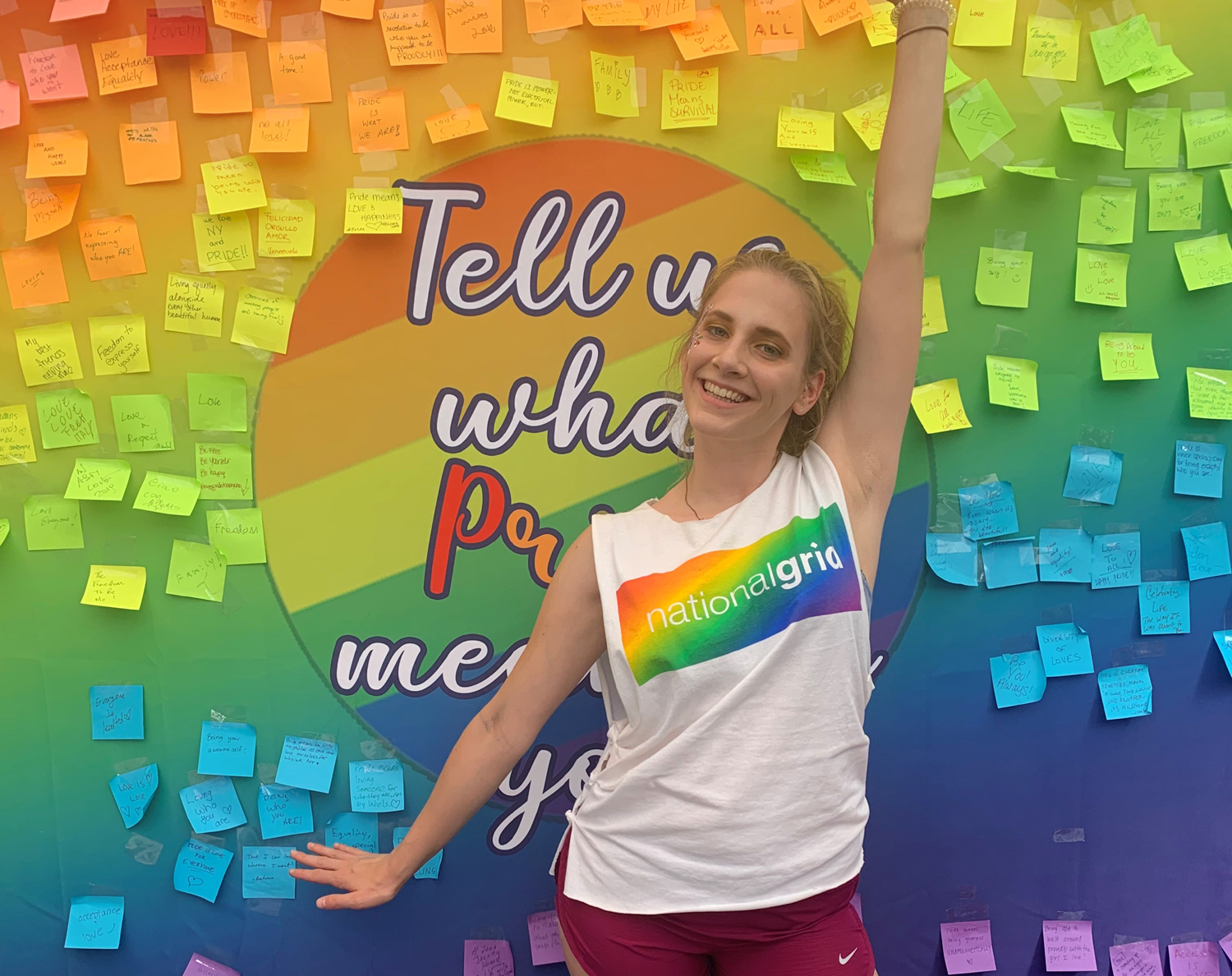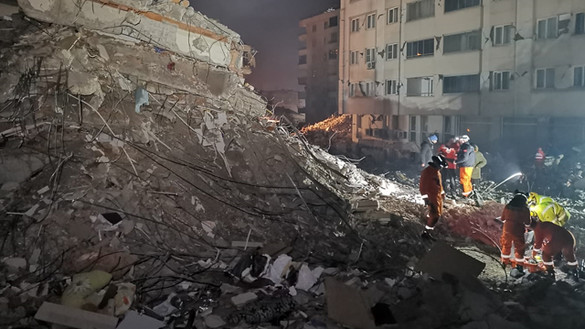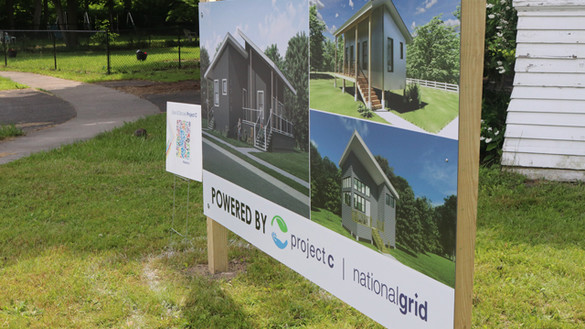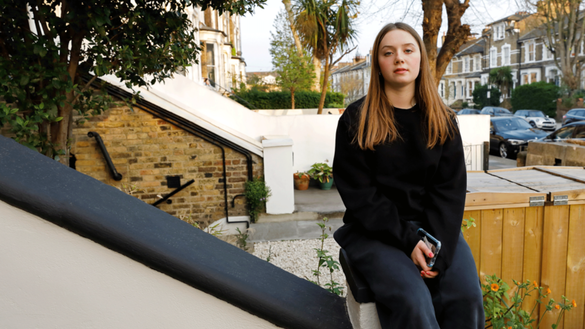

Pride in diversity
Pride month gives us the chance to celebrate and show our commitment to LGBTQ+ inclusion in National Grid and the community. Here the UK’s Pride network co-lead Emily Backhouse explains why Pride is important.
The past few weeks have seen protests around the globe calling for an end to racism. This sentiment echoes the origins of Pride, which commemorates the Stonewall riots. These took place in June 1969, in response to a police raid on a gay bar, the Stonewall Inn, in Greenwich Village.
Fifty-one years later we have come a long way, but Pride remains as important today as it was then. It’s a chance to celebrate the lesbian, gay, bisexual, transgender and queer (LGBTQ+) community, but also to remind ourselves that there is still much work to be done to promote inclusion in society and at work; as these statistics from Stonewall prove:
-
One in five LGBT people have experienced a hate crime or incident because of their sexual orientation and/or gender identity in the last 12 months.
-
Two in five trans people have experienced a hate crime or incident because of their gender identity in the last 12 months.
-
One in five (19 per cent) lesbian, gay and bi employees have experienced verbal bullying from colleagues, customers or service users because of their sexual orientation in the last five years.
-
A quarter (26 per cent) of lesbian, gay and bi workers are not at all open to colleagues about their sexual orientation.

Emily’s experience
I’m 22 years old, but even when I was at school the term ‘lesbian’ was spat at with malice and disgust. It was always something to avoid. Rumours like ‘OMG, did you hear that this person is a lesbian’ were spread with hatred and girls would be actively rude to the person in question. It always made me feel uncomfortable.
Even as an adult on dates with girls for the first time was terrifying. I would bail at the last minute, telling myself I couldn’t be bothered when, in reality, I was too scared to push past the homophobia that had been drilled into me my whole life.
It was only once I was able to get over this internal homophobia that things became easier, but that wasn’t a quick process. Now I do have a wonderful girlfriend and I’m infinitely happier and more fulfilled. But even today, if you were to ask me about my sexuality, I’d probably say I’m gay, as I can’t shake the stigma that was attached to ‘lesbian’ in my teens. But I’m slowly beginning to own the word.
Having the Pride network at National Grid has definitely helped me find confidence in myself. It’s great to have the support of so many friends within the business.
Having the Pride network at National Grid has definitely helped me find confidence in myself. It’s great to have the support of so many friends within the business. Last year I was able to go to World Pride in New York, where National Grid hosted a stand and participated in the parade of four million people. It was a wonderful experience and I learned so much that I could bring back to improve LGBTQ+ inclusion in the UK network.
Virtual Pride
This year, because of COVID-19, marches have become virtual events and, throughout lockdown, we’ve been hosting online socials to celebrate Pride month. These have been great ways to get to know other members of the network and stay connected. Our Pride network reflects our commitment that at National Grid people should be able to bring their whole selves to work, irrespective of their skin colour, gender, sexual orientation, race, ethnicity or other traits that define us.
Recruiting allies
But Pride is much more than just a social and support network for LGBTQ+ people, it also offers us the chance to educate and include those outside our community. This year, one area we are focusing on is increasing the number of allies.
An ally is someone who supports their LGBTQ+ colleagues and shows their commitment to increase LGBTQ+ inclusion. This is something I saw a lot of in New York, as many of the National Grid organisers and marchers were allies who strongly advocated for their LGBTQ+ colleagues.
While Pride marches may be cancelled around the world this year, it’s still a time to celebrate and highlight the importance of treating everyone – both at work and in the wider community – with the respect and dignity they deserve.


